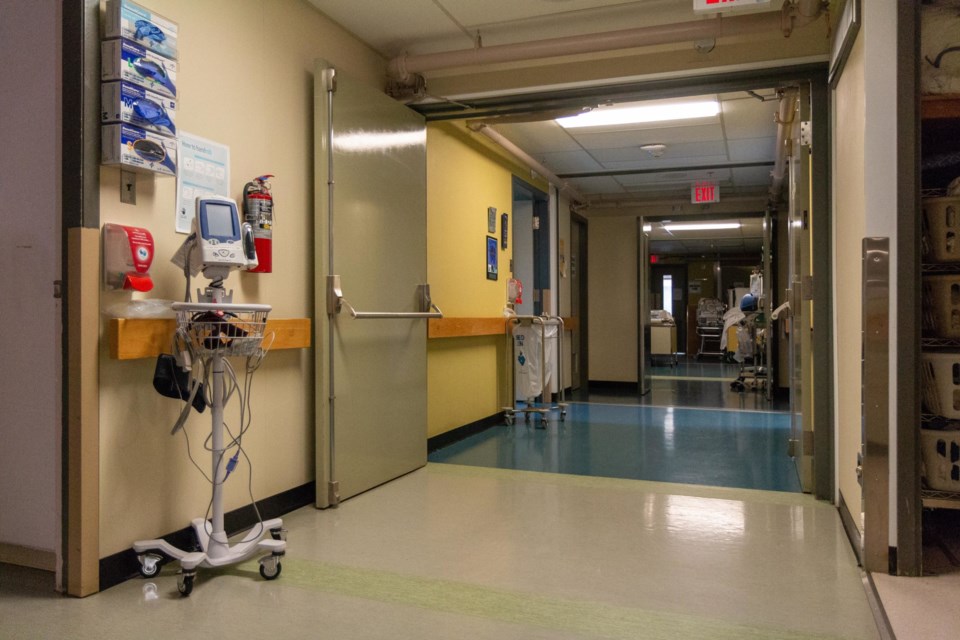Until further notice, the emergency department at Ashcroft Community Health Centre is open only from 5 pm to 10 pm on Friday, and 8 am to 8 pm on Saturday. Outside those hours residents will have to go to the ER at Royal Inland Hospital in Kamloops, 97 kilometres away.
At the Slocan Community Health Centre the ER is open daily from 8 am to 8 pm. Outside those hours the closest ER will be at Arrow Lakes Hospital in Nakusp, 47 kilometres away.
Lab services in Barriere have been reduced to one day a week as staff are redeployed to essential services.
The changes are being made as Interior Health struggles with the double whammy of staff illness that peaked in recent weeks at 900 sick calls in a single day (about a third of them Omicron-related, according to reports) and 895 staff whose employment has been terminated because they did not meet the deadline for mandatory COVID-19 vaccinations.
That’s 4.3 per cent of Interior Health’s workforce.
And as difficult as the coming months will be for Interior Health and the Interior residents who rely on those healthcare services, it’s necessary.
Working in healthcare is not the right job for those who don’t believe in public health.
For well over a decade some hospitals and healthcare facilities have been mandating influenza vaccines for employees. Legal challenges to those mandatory vaccinations have failed, as have several challenges to COVID vaccine mandates.
It’s worth noting that B.C. reached an agreement with the province’s nurses just before COVID-19 reached our shores leaving it up them whether to have the seasonal flu shot. But this is not the seasonal flu.
Interior Health did not provide a breakdown of the job titles of the 895 staff who have lost their jobs. ER closures and shifting to cover essential services suggest no small number of them are frontline health providers.
The province just announced that all regulated healthcare workers, including dentists, massage therapists, midwives, optometrists and psychologists, will have to be vaccinated by March 24.
That’s a bitter pill in rural communities, already understaffed and lacking resources.
It’s particularly difficult for the thousands of patients whose surgeries have been postponed as Interior Health triages the latest wave of the virus.
But there is an onus on healthcare workers to protect patients by protecting themselves and to protect confidence in the public health system, not to mention protecting the health care system itself, which is shuddering under the strain of COVID.
This is a highly contagious virus with a much higher mortality rate than the seasonal flu.
If restaurant staff and gym owners are expected to abide by public health orders that come at great cost, surely healthcare settings have a still greater responsibility to do so. Vaccinations are the path forward to lifting restrictions on daily life and easing the burden on businesses.
B.C. is not nearly as divided on the issue as protests, the occupation in Ottawa and the very active presence of anti-vaxxers on social media would suggest. Nearly 90 per cent of B.C. residents age 5+ (those eligible for the vaccine) have received at least one dose and just over 84 per cent have received two doses.
The overwhelming majority of British Columbians are doing their part to allow life to return to something nearer normal.
Dene Moore is an award-winning journalist and writer. A news editor and reporter for The Canadian Press news agency for 16 years, Moore is now a freelance journalist living in the South Cariboo.



